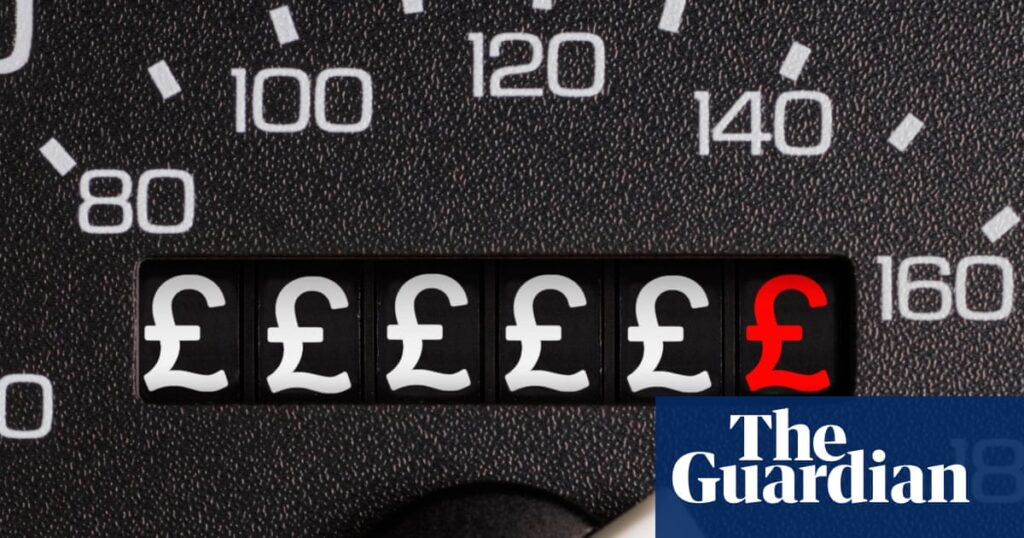Millions of drivers could be handed a share of up to £18bn in compensation, after the City regulator said it would open a redress scheme for consumers affected by the car finance scandal.
The Financial Conduct Authority (FCA) said on Sunday it planned to consult on the redress scheme, which could cost banks between £9bn and £18bn when it begins paying consumers compensation next year.
The watchdog set out the plans after the supreme court largely overturned a ruling on car finance that could have led to compensation payouts of up to £44bn, a similar scale to the payment protection insurance (PPI) scandal.
Bobby Dean, a Liberal Democrat MP and member of the influential Treasury Committee, said the issue of mis-sold car finance remained “the biggest consumer finance scandal since PPI”.
“Millions will be owed. The compensation bill is likely to surge above £10bn. Industry must learn that honesty matters and adjust their practices going forward accordingly,” he said.
The FCA said it was unlikely that the cost of its scheme would be materially lower than £9bn and it could be “materially higher”. It added that while some scenarios put the total cost as high as £18bn, it considered estimates in the mid-point of this range “more plausible”.
The regulator will start consulting on the scheme by October, and plans to include motorists who were harmed by discretionary commission arrangements. In most cases, the scheme would be likely to pay out less than £950 in compensation for each claim, it added.
These discretionary commissions, which were banned in 2021, inflated the cost of car financing by allowing car dealers to claim higher commissions if they put customers on loans that earned higher interest rates for the lender. About 14.6m contracts included that arrangement between 2007 and 2020.
The watchdog will also consult on broader motor financing issues where motorists may have been harmed by egregious or unfair commission arrangements. That would encompass a larger group of borrowers, and likely cover agreements between 2007 and 2024, the FCA said.
The supreme court largely sided with finance companies on Friday by overturning an earlier ruling that the commissions were illegal. Judges upheld a single case that was deemed “unfair”, due in part to the size of the commission paid to the car dealer and how it was disclosed.
Nikhil Rathi, the FCA’s chief executive, said: “It is clear that some firms have broken the law and our rules. It’s fair for their customers to be compensated. We also want to ensure that the market, relied on by millions each year, can continue to work well and consumers can get a fair deal.
“Our aim is a compensation scheme that’s fair and easy to participate in, so there’s no need to use a claims management company or law firm. If you do, it will cost you a significant chunk of any money you get.
“It will take time to establish a scheme but we hope to start getting people any money they are owed next year,” he said.
The supreme court case was brought by two specialist lenders, Close Brothers and South Africa’s FirstRand, in an attempt to challenge the three consumers who collectively won the court of appeal case in October.
Justices were asked to review the court of appeal ruling, which suggested nearly all commission arrangements – unless plainly disclosed and issued under full consent of the consumer – were unlawful.
If upheld, it would also have meant millions of people who bought a car with finance could be owed compensation at an estimated cost of up to £44bn to lenders including Santander UK, Close Brothers, Barclays and Lloyds.
after newsletter promotion
The sum would have almost rivalled the payment protection insurance saga, which cost banks about £50bn.
The FCA said the final compensation scheme would have to balance a range of concerns, including the level of harm caused to consumers.
However, it would also have to consider whether lenders may react to large payouts by pulling affordable loans from the market. The FCA said it needed to “ensure consumers continue to be able to access affordable loans for motor vehicles”.
The car finance industry has claimed that a steep compensation bill would break some lenders, while others would be forced to offer fewer or more expensive loans to claw back their losses.
The FCA also tried to manage expectations of large individual payouts, saying borrowers were unlikely to get back much more than the amount of commission originally paid to the car dealer. While interest would also be applied, that sum was likely to total about 3% a year.
Any scheme that went beyond discretionary commissions would also consider a range of factors, including how financially literate the borrower was when they signed the contract, and how much information was provided.
The FCA said it would ensure lenders assessed claims “consistently, efficiently and fairly”, adding that it would “monitor if firms are following the rules and act if they’re not.”
The City regulator added that anyone who was concerned about their agreement should contact their lender directly, while borrowers who had already filed a complaint with their lender did not have to do anything. Complaints will not be reviewed until at least December, having been put on pause by the regulator.

